Upcoming workshop in Limerick
When: 19th June
Where: City Hall, Merchants Quay, Limerick
To register (free): Eventbrite
When: 19th June
Where: City Hall, Merchants Quay, Limerick
To register (free): Eventbrite
Members of our NSRF team have co-authored a new report that highlights the support needs of young people and their families after a suicide bereavement.
Funded by HSE National Office for Suicide Prevention, the report amplifies the voices of bereaved young people, parents, and the professionals who support them.
We deeply appreciate those who took part in this research and openly shared their stories and experiences with us.
Key recommendations for enhancing supports for young people and their families following suicide bereavement are summarised in the images below.
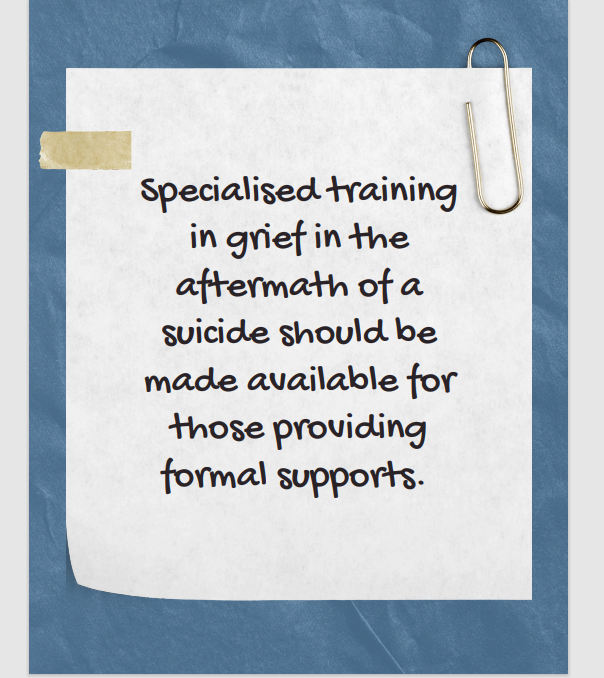

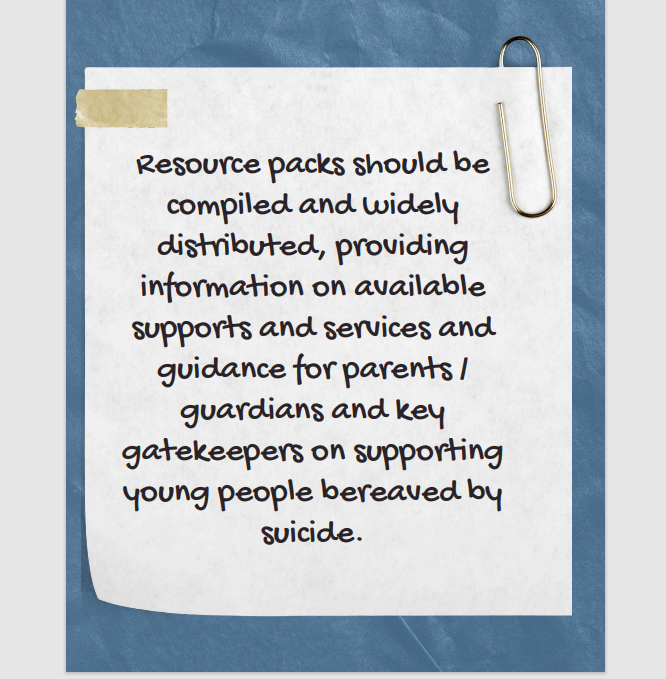
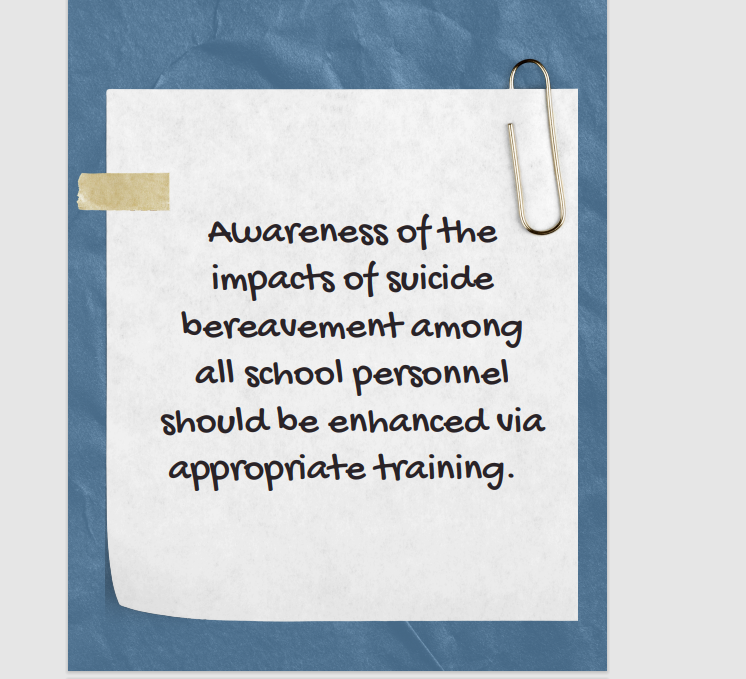
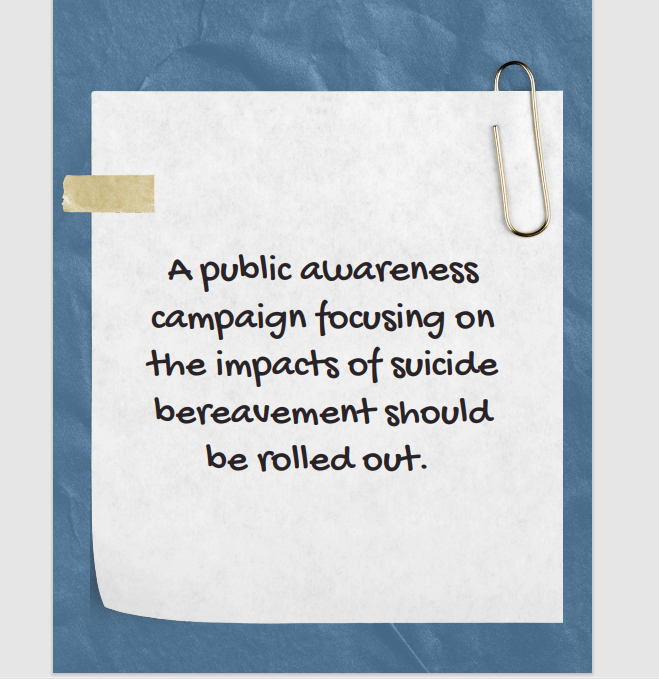
The National Self-Harm Registry Ireland is a system that records and reports information about people who visit hospital Emergency Departments for self-harm related injuries. We often refer to it as the ‘Registry’.
The Registry was established in 2000 by members of the NSRF team, working closely with our colleagues in the School of Public Health, UCC. It was set up at the request of the Department of Health and Children and is funded by HSE National Office for Suicide Prevention.
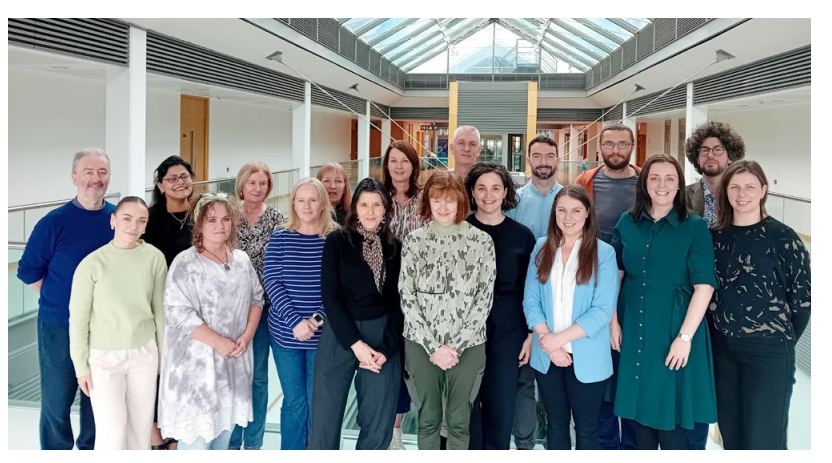
It was the first Registry of its kind and is acknowledged by the World Health Organisation as a model for other countries to develop similar self-harm surveillance systems.
The Registry aims to:
▶️ Identify rising trends and at-risk demographics
▶️ Inform the progress of research and prevention
▶️ Contribute to policy and development
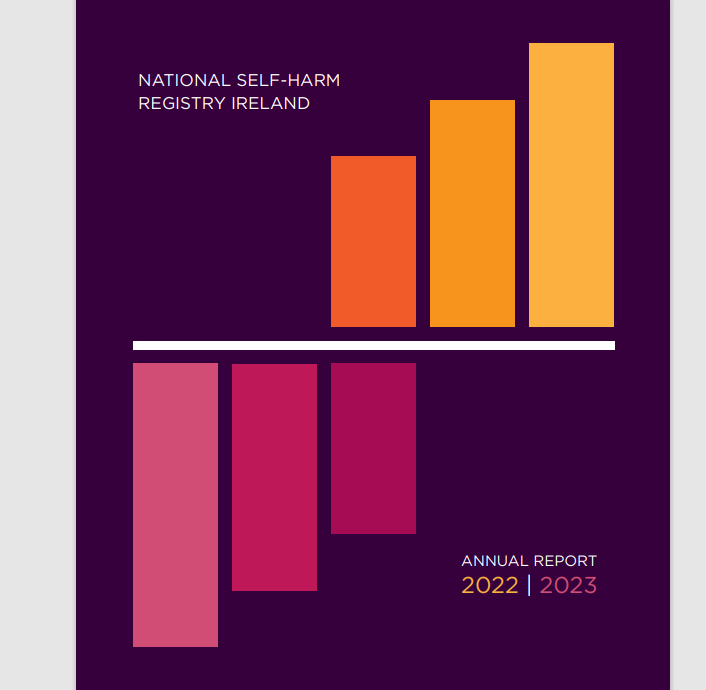
Each year, we produce a report based on findings from the data gathered by the Registry.
All Registry reports are available here Registry Annual Reports, Interim Reports and CHO Reports if you would like to read them.
If you prefer, you can watch our new video to discover the findings of our latest Annual Report, covering the years 2022 and 2023.
With thanks to all members of the Registry team, especially our Data Registration Officers.
The 2nd edition of the NSRF Newsletter is here!
The Newsletter aims to keep you informed about our ongoing projects, and features recent research events and publications, as well as interviews with team members.
If you would like to learn more about any of our projects, publications or events, please email infonsrf@ucc.ie.
With thanks to the team for contributing content, and to Sofia and Niall for their editing and design skills.
Read our Newsletter below or click here to see previous Newsletters.
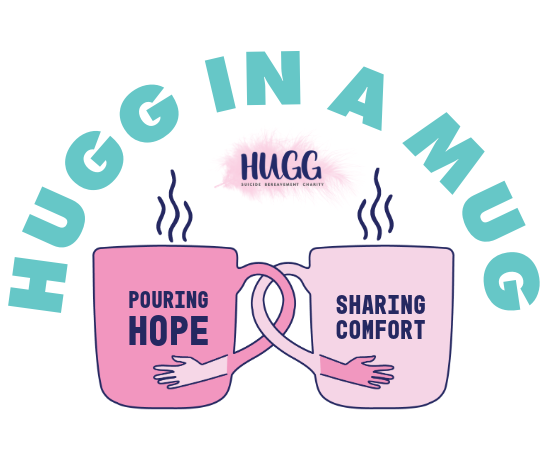
Yesterday, our team held a fundraising tea and coffee morning, a HUGG in a Mug Moment, with donations going to HUGG, a suicide bereavement charity which provides vital support to people navigating the loss of a loved one to suicide.
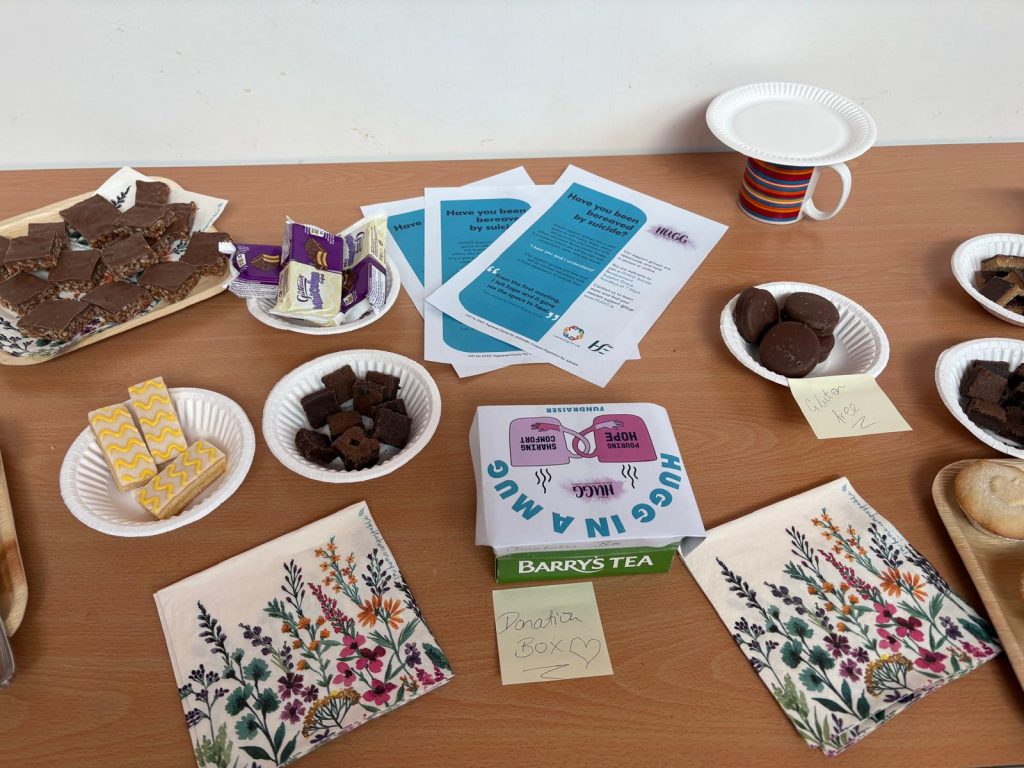
The NSRF and HUGG have been working together since 2020.
Our first collaborative project examined the demographics and profile of individuals bereaved by suicide who were attending the HUGG peer-support groups in terms of psychological wellbeing and grief experiences.
We also collaborated on Ireland’s first large-scale national study of people bereaved by suicide. This study, funded by HSE National Office for Suicide Prevention, aimed to examine and understand the profile and needs of those bereaved by suicide. Over 2,400 people contributed to the survey, highlighting the need for those bereaved by suicide to tell their story and to have their voices heard.
The findings from this survey provide invaluable insight into the experiences of people bereaved and affected by suicide, the impacts on their lives and the supports received following their loss. The findings also illustrate the specific challenges unique to suicide bereavement and have important implications for support and service provision.
We thank Caroline, in particular, for organising a lovely morning for our team to connect, and to raise money for such a worthy cause.
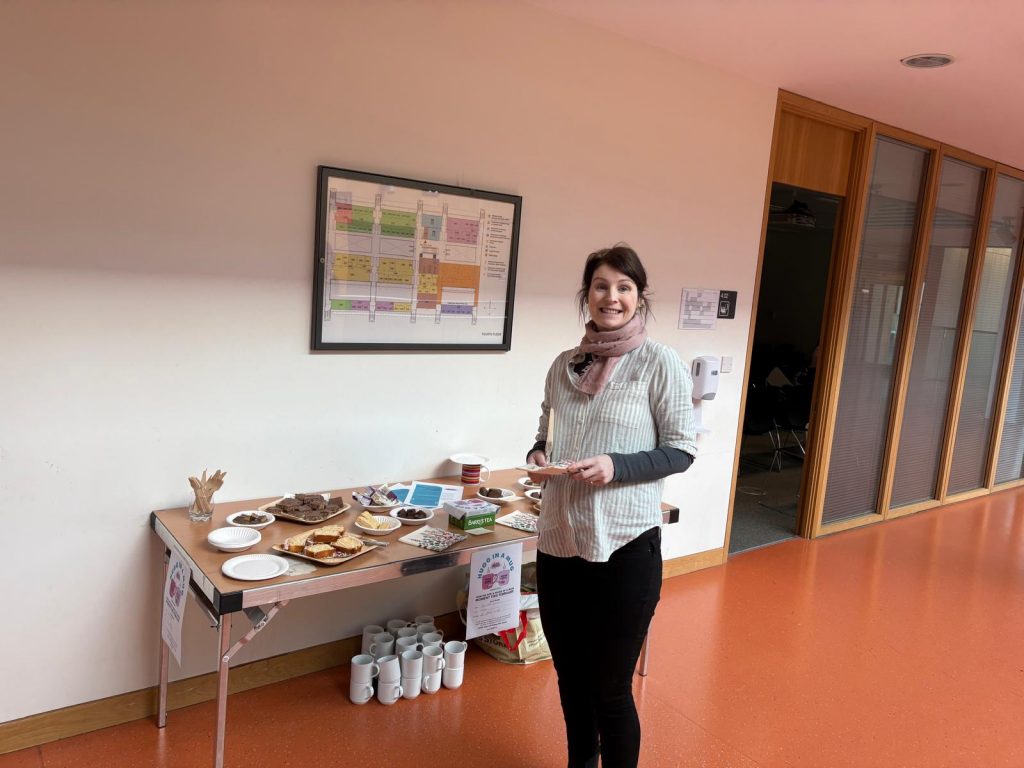
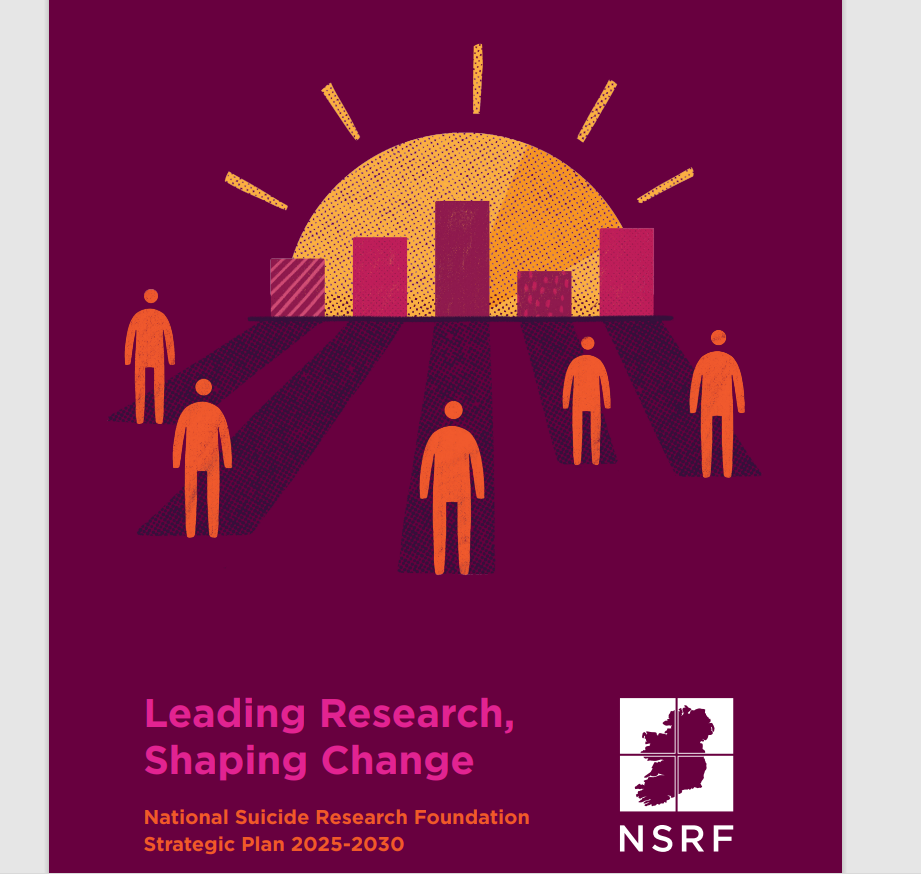
We are incredibly proud and excited to present our new Strategic Plan – Leading Research, Shaping Change, 2025 – 2030, which was launched today in UCC.
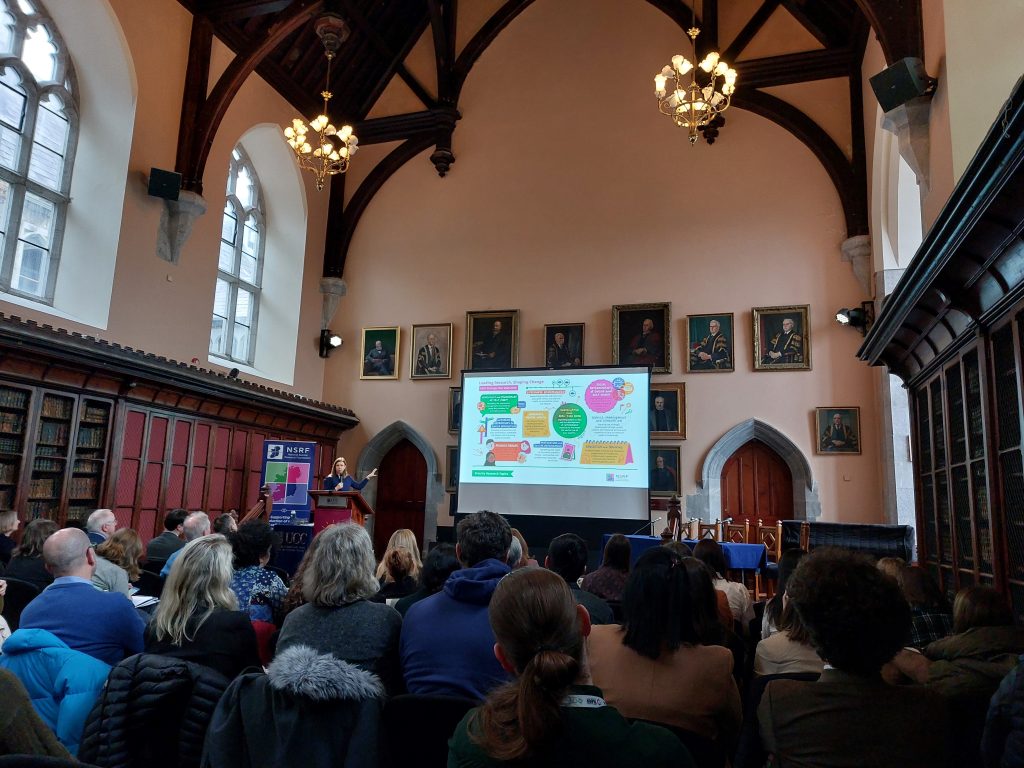
Our Strategic Plan outlines key priority areas and research topics to guide our organisation over the coming six years. It also sets out our revised vision, mission and values, building on the consistent and high-impact work by the NSRF over the past 30 years.
The launch of our Strategic Plan today reflects the commitment of the NSRF to deliver high quality and innovative research and to uphold our organisational values.
We wish to thank each and every person who contributed to our new strategy, and all those who support our work.

We are very excited to be involved in PROSPERH, an innovative project which aims to improve physical and mental health in workplaces.
Ireland is one of 16 countries participating in the project, which is funded by the Horizon Europe Work Programme 2023 – 2028.
In recent years there have been rapid changes in how we work. A recent Flash Eurobarometer survey found 46% of workers reported being under severe time pressure and work overload, 27% reported work-related stress, depression and anxiety and 30% reported bone, joint, muscle problems or pain caused, or made worse, by work.
PROSPERH will support workplaces to prevent, or better manage, work-related physical and mental health conditions and prepare them for current and future changes to work environments.
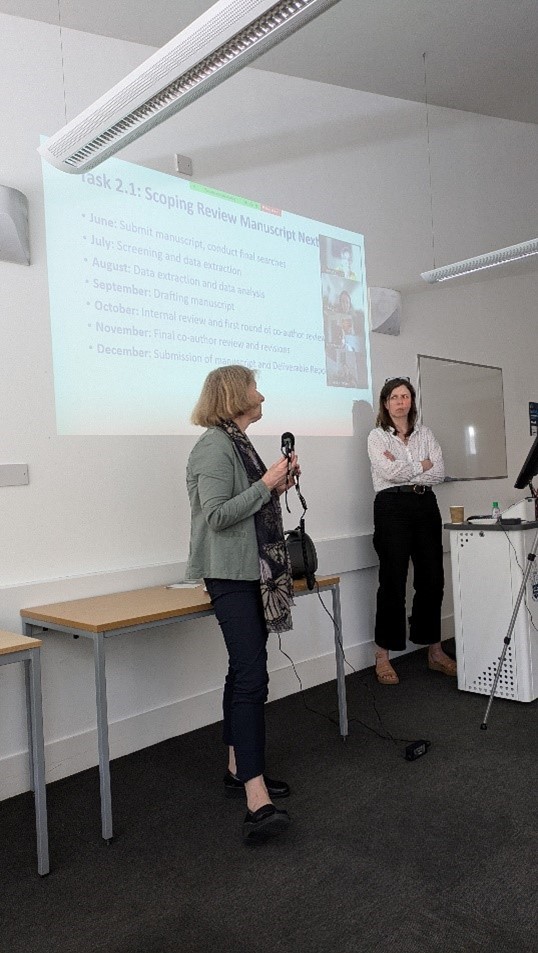
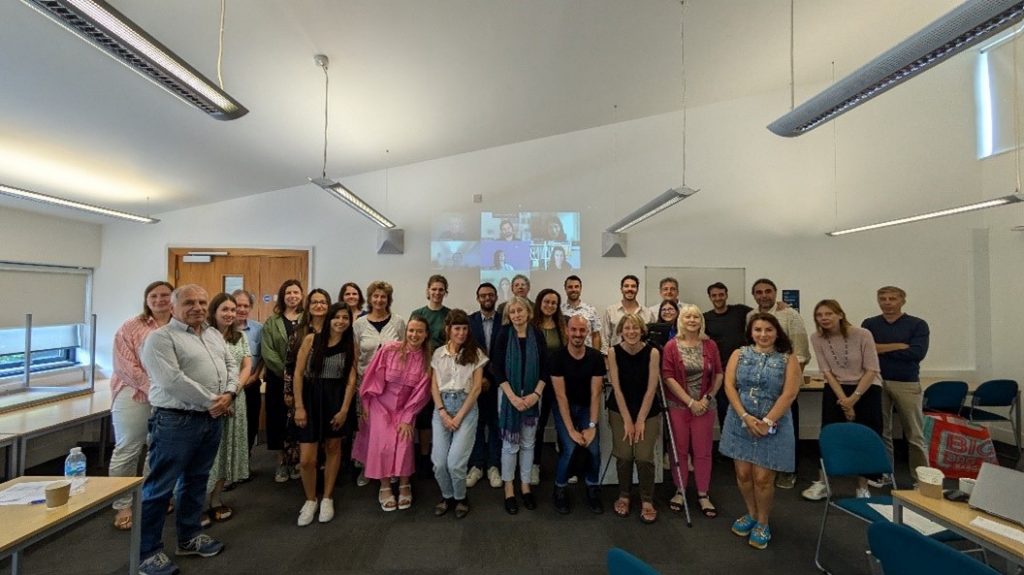
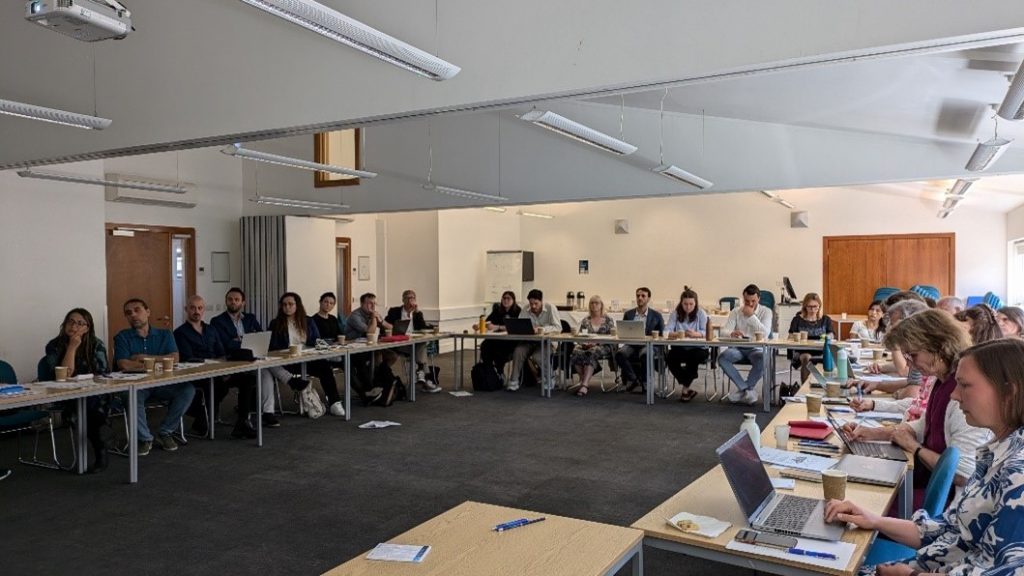
Watch our video to learn more about the work we are doing, visit the PROSPERH page on our website and the PROSPERH website to keep updated.
This new year, as always, the NSRF team will continue our mission to ensure that suicide prevention activities, in Ireland and globally are informed by high-quality research and data.
Here are some highlights we anticipate:
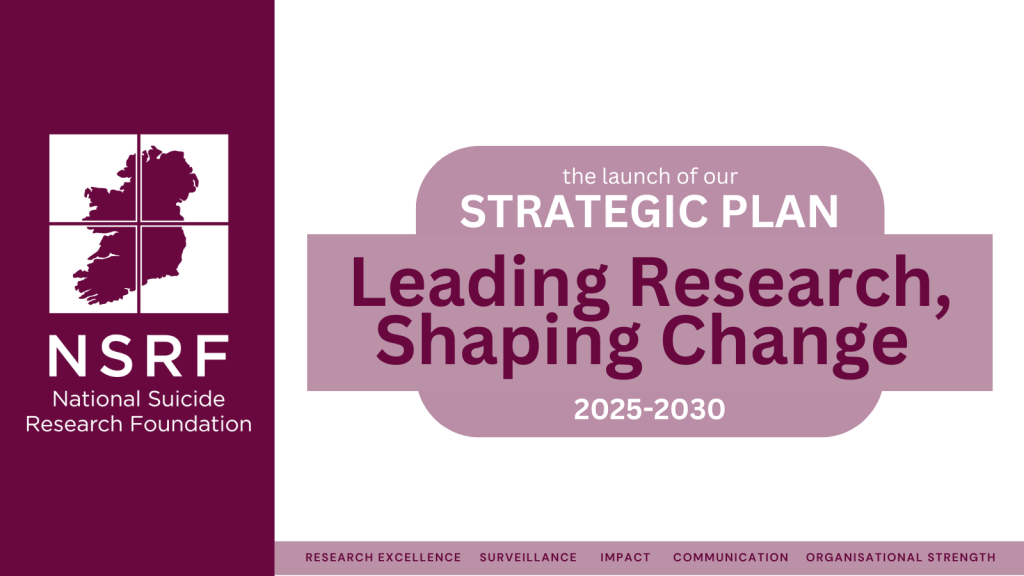

In addition, we look forward to further close collaboration with our colleagues and partners this year. We appreciate your continued support and dedication. Together, and through our impactful research, we can support the reduction of suicide and self-harm in Ireland, and globally.
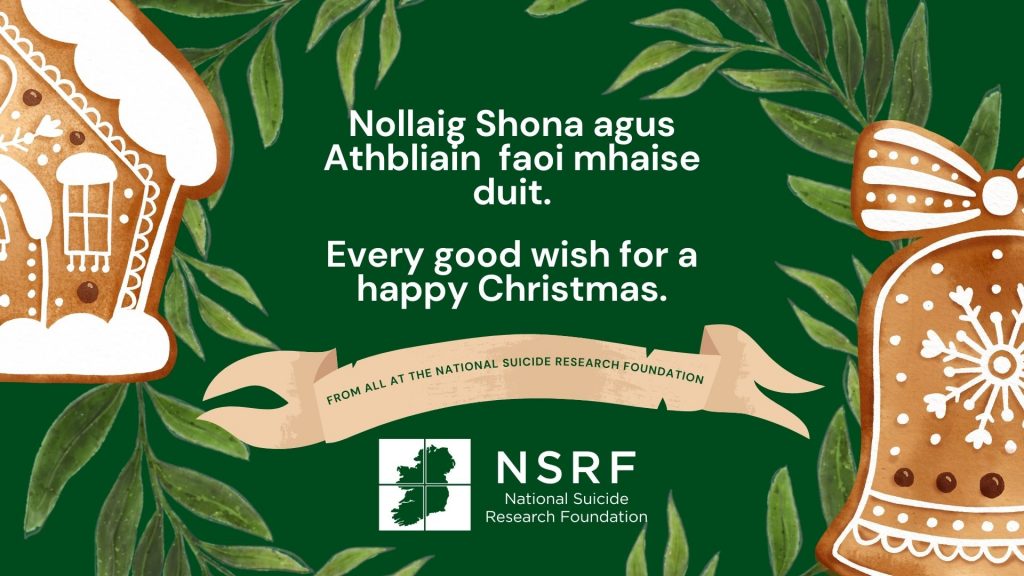
We would like to thank you for supporting our research over the past year and wish you all a happy, healthy and peaceful Christmas!
If you require support, please remember that Samaritans Ireland are always available (116 123) ‘Text About It’ by spunout (086 1800 280); ISPCC Childline (1800 66 66 66).
The NSRF Team
Our SAMAGH project (Self-harm Assessment and Management in General Hospitals) is an innovative training programme designed to improve the assessment, management annd support of high-risk self-harm patients.
The training is in two parts:
We have delivered the training to many types of healthcare professionals, particularly clinical nurse specialists, psychiatry registrars and non-consultant hospital doctors, in General Hospitals across Ireland.
As well as delivering the SAMAGH training, we also undertake evaluation to assess it’s impact.
We ensure our training is CPD approved for by relevant bodies and certificates are issued to all participants.
If you are interested in learning more, or in taking part, please watch our information video, visit our SAMAGH page or contact us.